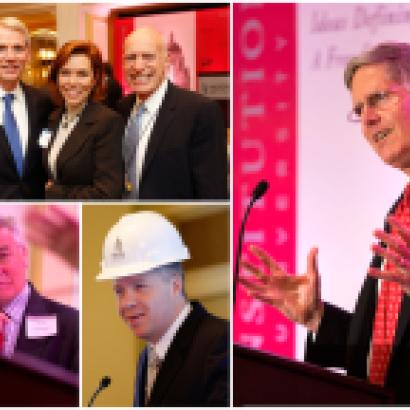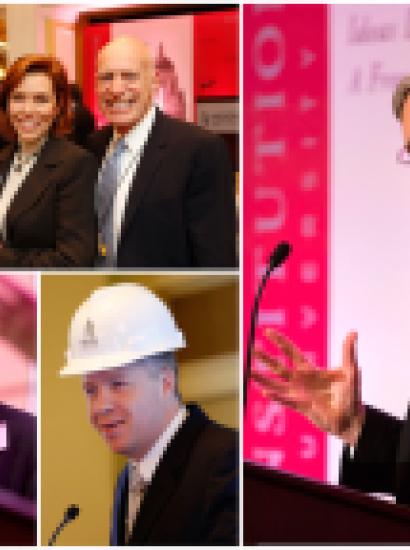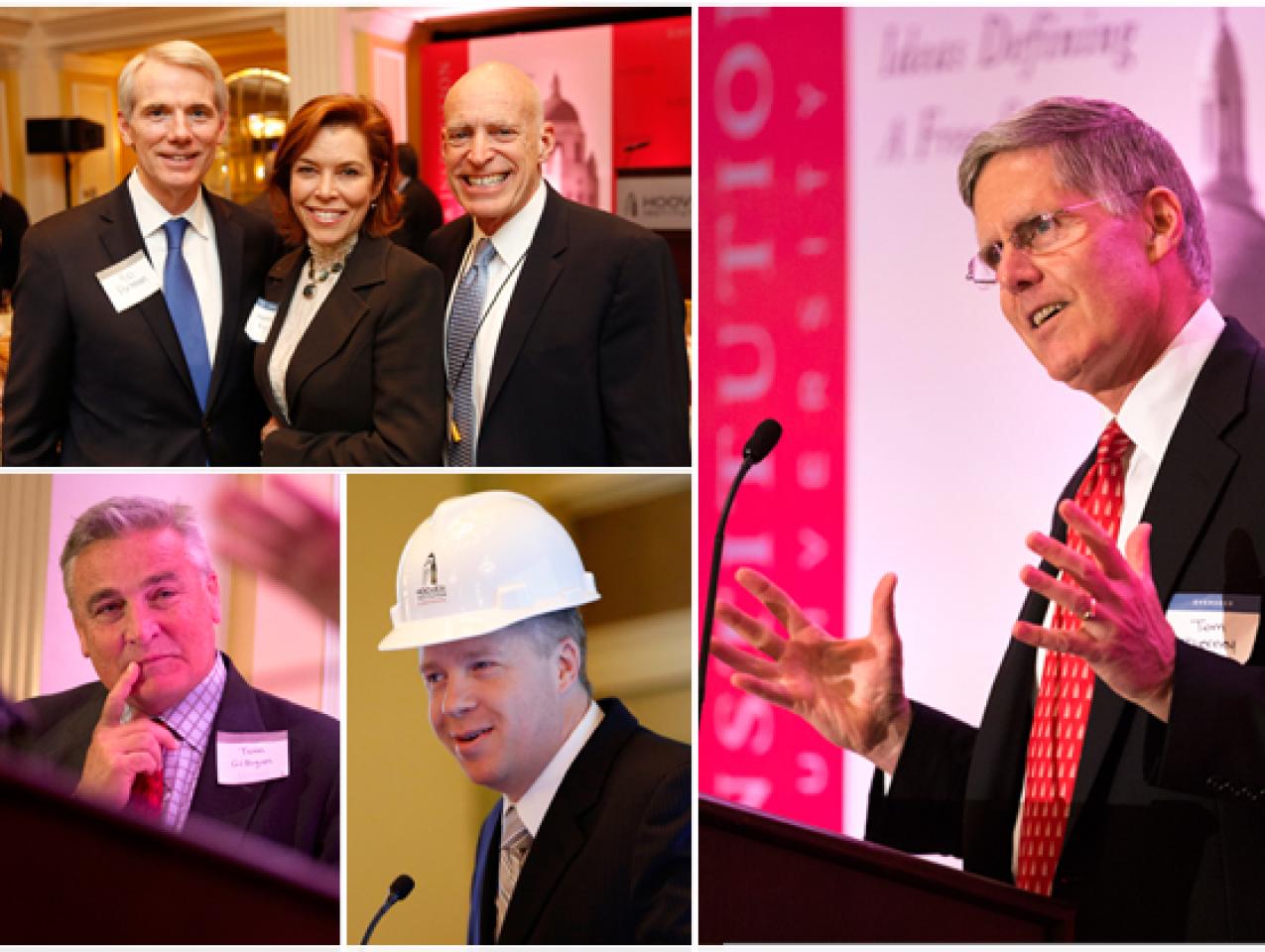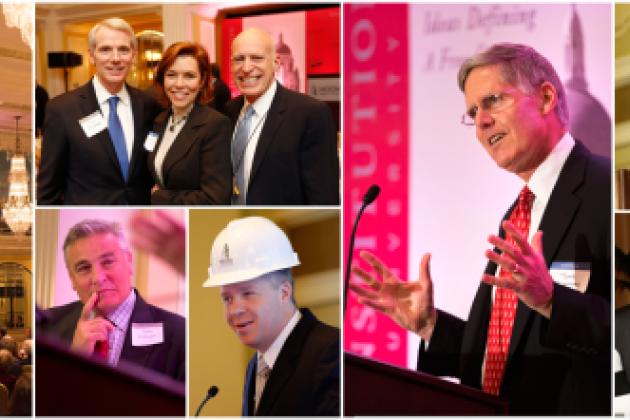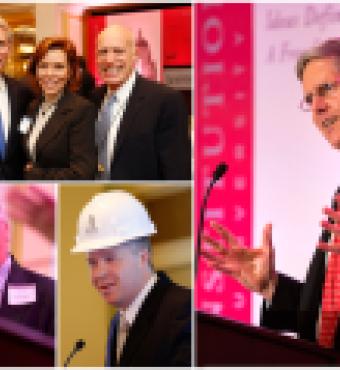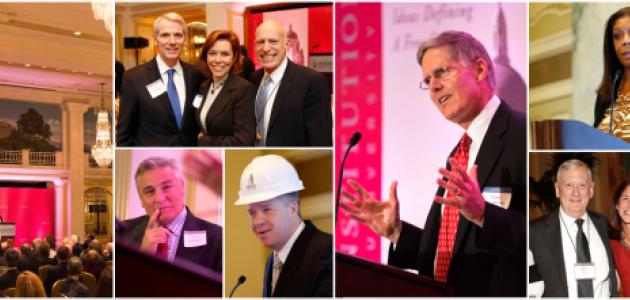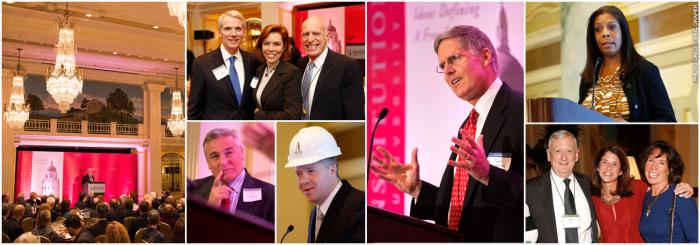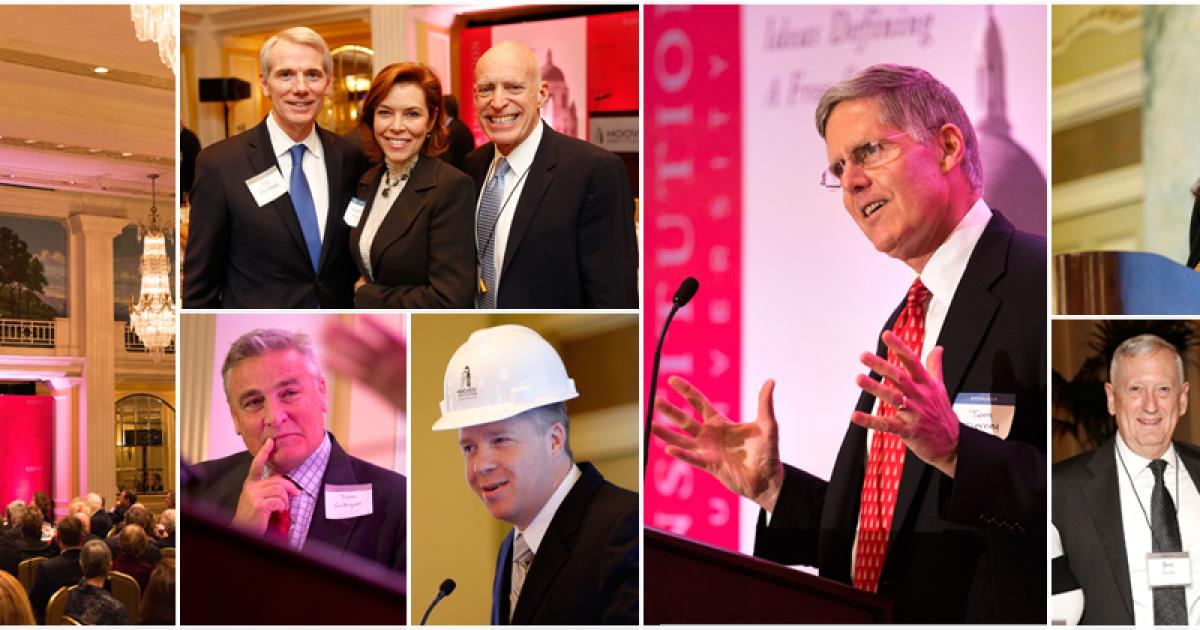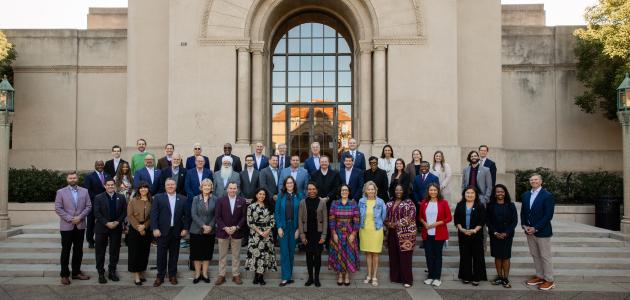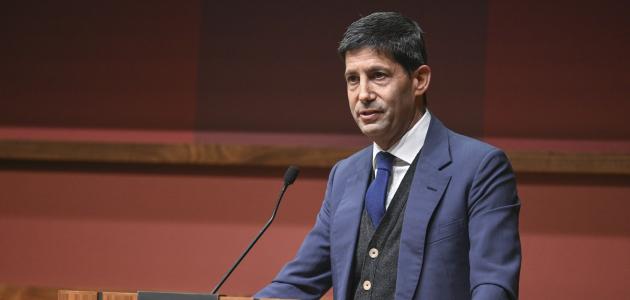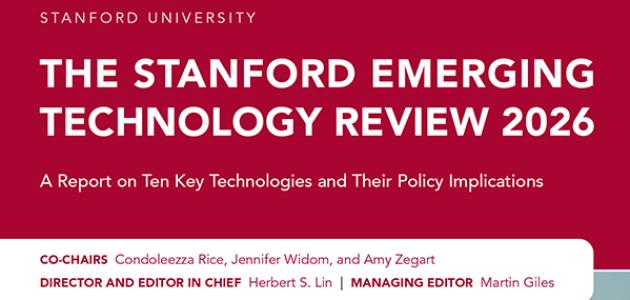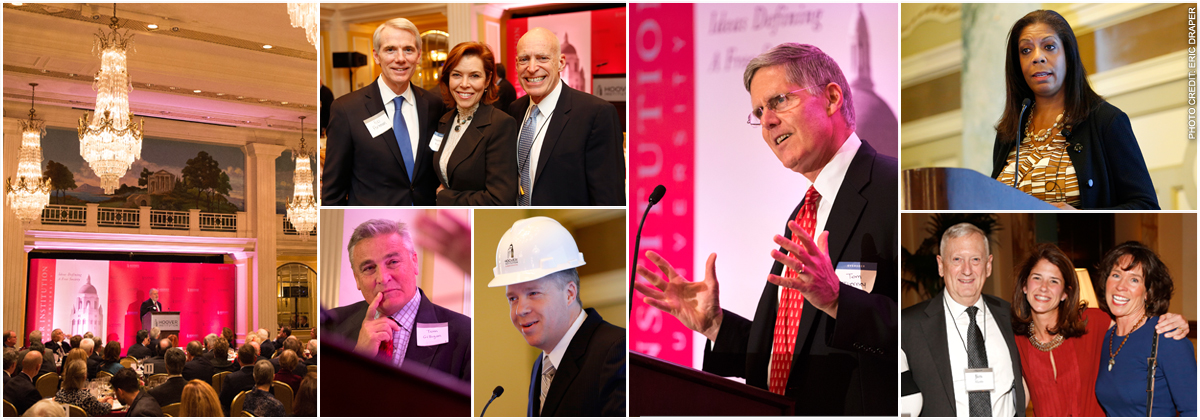
This February, the Hoover Institution’s directors, fellows, and overseers met at the historic Willard InterContinental Hotel in Washington, DC, for the annual winter Board of Overseers Meeting.
Currently chaired by Thomas Tierney and composed of more than 100 members, the Board of Overseers ensures that Hoover adheres to the founding intent of Herbert Hoover and the institution’s governing documents. Drawn from the ranks of professional, policy, and philanthropic leaders, the overseers play a hands-on role in Hoover operations and provide crucial financial support to the institution’s programs. Individual overseers are involved with Hoover throughout the year; biannually, however, the institution assembles the board at large to report on the stewardship of the institution, review progress on key initiatives, discuss current research and policy analysis, and strengthen the bonds among directors, fellows, and supporters.
Attendees to the Winter 2016 meeting were welcomed with a special opening reception and dinner featuring Hillsdale College president Larry Arnn, who shared stories about the life, work, and contemporary relevance of Winston Churchill. Regular meeting activities commenced the following morning with an executive committee session led by Tad and Dianne Taube director Tom Gilligan, who spoke about his successful transition to the role of director and the state of the Institution under his leadership. Gilligan outlined Hoover’s healthy financial position, strengthened bonds with Stanford University, growth of the fellowship and Library & Archives holdings, and new efforts to expand the institution’s impact on the world of public policy.
Other directors presented detailed reports on specific programs, beginning with Chris Dauer, associate director and director of marketing & strategic communications, who gave an update on the new Mary Jo and Dick Kovacevich Initiative: Educating Americans in Public Policy. That program explores strategies for reaching new audiences, such as millennials, with engaging, interactive, online content based on the work of Hoover fellows, including an animated adaptation of John B. Taylor’s principles of economics course. Bechtel Director of Communications Eryn Tillman then made a presentation on outreach strategies for national media, including conferences introducing reporters to Hoover research and fellows, election coverage as a vehicle to publicize policy solutions, and the direct release of Hoover research to campaign policy teams.
Eric Wakin, deputy director of the Hoover Institution and the Robert H. Mallot Director of the Library & Archives, unveiled a new search engine for Hoover’s vast collection of digitized archival holdings. Nicknamed “Hoogle” by Wakin’s son, the search engine demonstrates the Institution’s philosophy that historical materials must be preserved but also made widely accessible. Finally, Director of Operations Jeff Jones donned a hard hat to talk about progress on the David and Joan Traitel Building, the 55,000-square-foot addition to Hoover’s facilities made possible by lead gifts from former chairman of the Board of Overseers David Traitel and his wife, Joan; along with overseers Bill Blount; Art Hall and his wife, Joanne; and Everett “Sparky” Hauck and his wife, Jane. Scheduled for completion in 2017, the Traitel Building includes event facilities that will dramatically increase Hoover’s engagement with supporters, the larger policy community, and Stanford University.
The Board meetings also provide Hoover fellows with an opportunity to apprise overseers of their work. Notable speakers included Harvey Mansfield, senior fellow at Hoover and professor of government at Harvard University, who assessed the current state of the Republican Party. Lieutenant General H. R. McMaster, research fellow and former national security affairs fellow at Hoover, spoke on the geopolitical challenges to defense strategy awaiting the next president. Niall Ferguson, who will join Hoover in the summer of 2016 as a full-time, in-residence senior fellow, complimented McMaster’s talk with a look at the global economic issues in store for the next administration and offered sound policy advice for presidential candidates.
Hoover also invited several Washington-based guest speakers to the meeting, including Kentucky Senator Mitch McConnell, who discussed lessons learned from his time as Senate Majority Leader, strategies for the senate to succeed in effecting legislative change, and the prospects for the future under new presidential leadership. Bill Kristol, founder and editor of the Weekly Standard, delivered an entertaining dinner briefing that made sense of what he called the “uncharted waters” of the 2016 election cycle. National Affairs editor Yuval Levin joined visiting Hoover fellow Adam White for a panel conversation on the life and legacy of Supreme Court justice Antonin Scalia.
The meeting concluded Tuesday evening with a session at the Hoover Institution’s Johnson Center, headquarters for the Hoover Institution in Washington, that was established as a bridge between the California-based fellowship and the nation’s core policy-making community and east coast–based media. That session included an update from Michael Franc, director of Washington, DC, Programs, on the institution’s growing influence in DC policy circles and a guest briefing by Senator Kevin McCarthy. The session ended with a distinguished panel featuring US senator John McCain, Davies Family Distinguished Visiting Fellow general Jim Mattis, and Annenberg Distinguished Visiting Fellow admiral Gary Roughead, who discussed the international security climate and US preparedness in the face of evolving threats.
The winter 2016 meeting demonstrated the wide array of activities made possible by the Board of Overseers, whose strategic and financial contributions are integral to the Hoover Institution’s success. Although the meeting was both energetic and enjoyable, it also highlighted serious policy concerns facing the United States and the international community. With the support of the Board of Overseers, however, Hoover ensures that policy makers and the general public are ready to meet the challenge.








